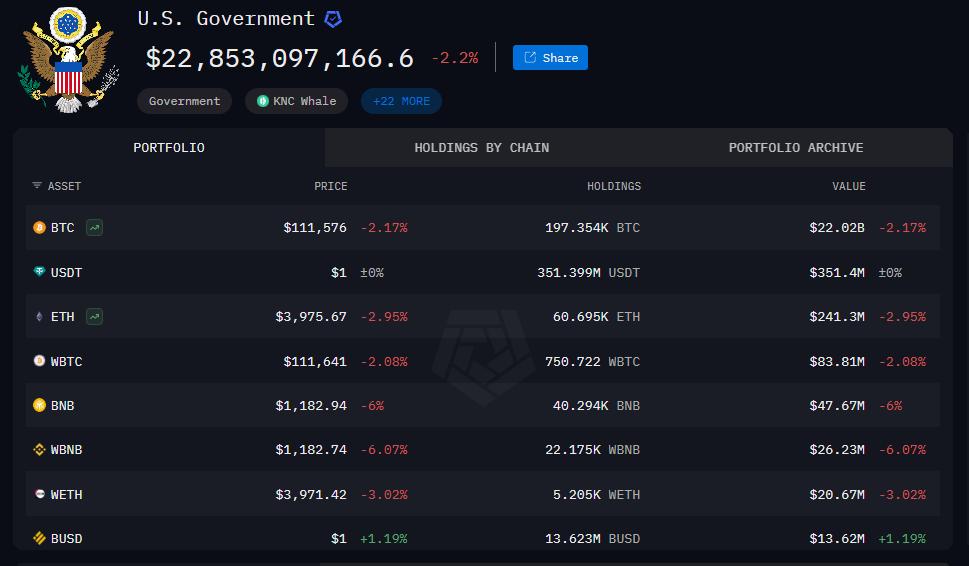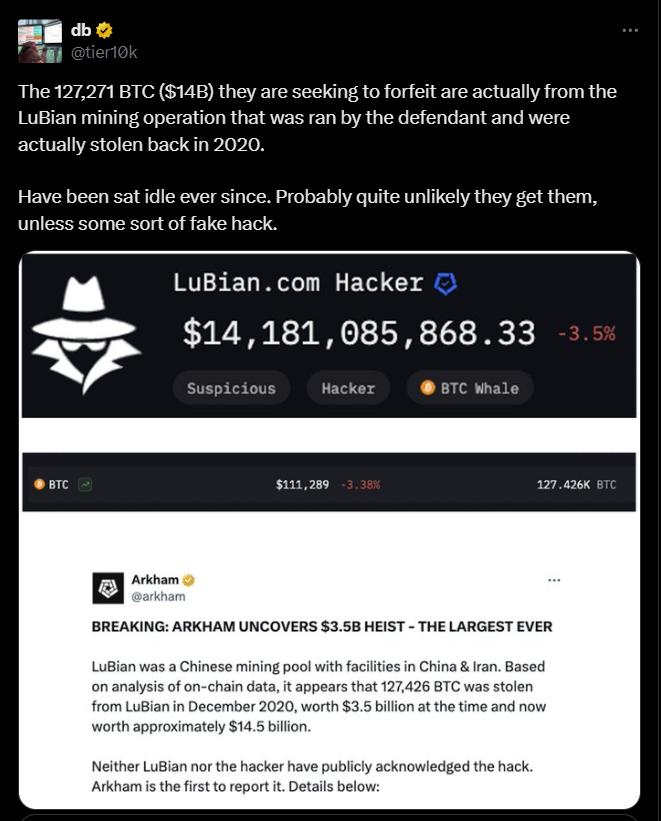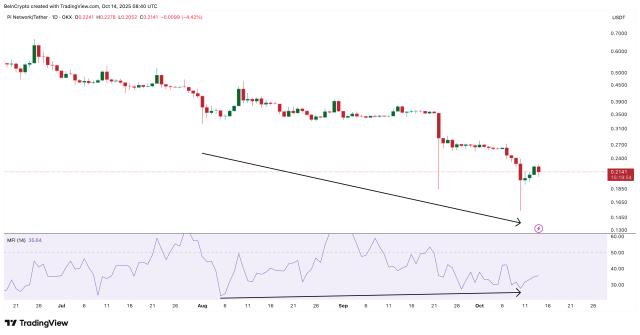The US is seizing about $12 billion in Bitcoin from the Prince Group, a Cambodia-based “pig butchering” scam, and has also imposed major sanctions on the Huione Group for facilitating money laundering.
If the Treasury Department can repossess and take possession of these assets, it could significantly boost Trump’s Strategic Reserve. But many defrauded Americans will likely struggle to reclaim their stolen money.
More Bitcoin for the US government
“Pig butchering” scams were already a big problem before the unprecedented crypto crime wave in 2025, but the rise of scams is making all of these problems even more serious.
A recent incident shows the scale of these cases, as the Treasury Department moved to seize $12 billion in Bitcoin from a long-running fraud scheme:
The Treasury Department also released a statement on this “pig butchering” operation, although it did not directly mention the effort to seize this Bitcoin.
 US Government Bitcoin Portfolio to Date. Source: Arkham
US Government Bitcoin Portfolio to Date. Source: ArkhamThey claim that a multinational investigation has targeted the Prince Group, a Cambodia-based criminal organization that by 2024 had stolen at least $10 billion from US citizens.
Additionally, the Treasury Department has completed its efforts to cut off Huione Group from the US financial system, due to its history of facilitating money laundering.
Private cryptocurrency companies have imposed restrictions on this Cambodian financial conglomerate, but the US government is taking a major step here.
Some reports suggest that these funds may actually be related to the largest cryptocurrency hack ever involving the LuBian mining pool.
 Source: X/db
Source: X/dbWhat is the meaning of strategic reserves?
The Prince Group’s operations are truly horrifying, involving human trafficking, torture, sexual exploitation, and more. The Treasury Department report details all of these unsavory aspects, which are perhaps too brutal for us to report.
For the crypto community, however, there is an important point to realize. If the Treasury Department can successfully seize this Bitcoin, it could be a huge boon for Trump's planned Strategic Reserve.
Specifically, the authorities faced a major problem : they were in control of a large amount of seized Bitcoin, but they had no legal ownership of it. They could not put these assets into the Strategic Reserve if they were legally bound to return them to the real victims of the scam.
There could be an opportunity here, depending on a number of factors. If the Treasury can recover these assets, $12 billion is a huge windfall. If even a small fraction of the original victims don’t pursue restitution, the Bitcoin could be kept.
In short, there are many factors at play. The US may not be able to seize these Bitcoins, or a large portion may be returned to their original owners. However, if a few billion dollars can be retained, this could make the Bitcoin Reserve really strong.







